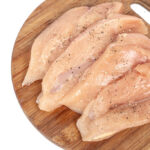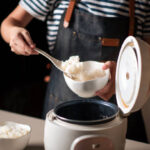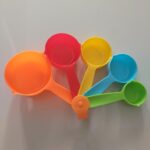Are you looking for the best way to make a perfect cup of coffee? If so, one of the most important ingredients is how many scoops of coffee per cup you use. It’s essential to take the time to measure correctly in order to get that ideal flavor and balance each time. Here we’ll cover when it comes down to considering different types of coffees and various brew methods, which all play an integral part in how much scooping is required. With this post’s guidance, you can ensure that your cup o’ joe will be delicious every single time.
Contents
What Are Scoops Of Coffee?
A scoop of coffee grounds is a precise measurement that refers to the amount of ground beans used in a single cup of joe. It is usually the same as two tablespoons, which equals six grams or 0.2 ounces. Depending on your brewing method, you’ll want to use anywhere from one to four scoops of ground coffee per cup.
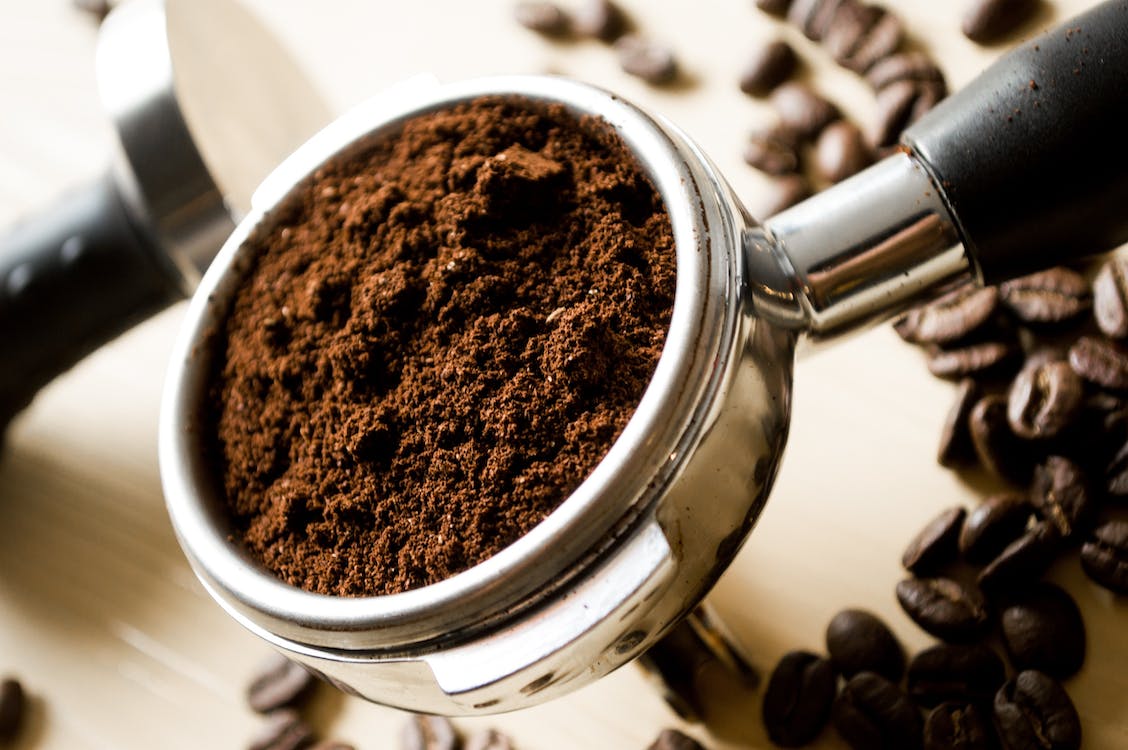
How Many Scoops Of Coffee Per Cup?
The amount of coffee grounds you should use per cup will depend on the type of coffee beans, the grind size and your brewing method. Generally, a good rule of thumb is one to two scoops of ground coffee for every six fluid ounces (or three-fourths cup) of water. However, if you are using a stronger coffee bean or a French press, you may want to increase the amount of scoops to three or four. If you’re using an espresso machine, use 18-20 grams (or one scoop) per shot.
How Many Scoops Of Coffee Per Cup By Type Of Coffee Beans?
For light roast coffee beans, use one to two scoops per cup. For medium roast beans, use two to three scoops per cup. And for dark roast beans, use three to four scoops per cup.
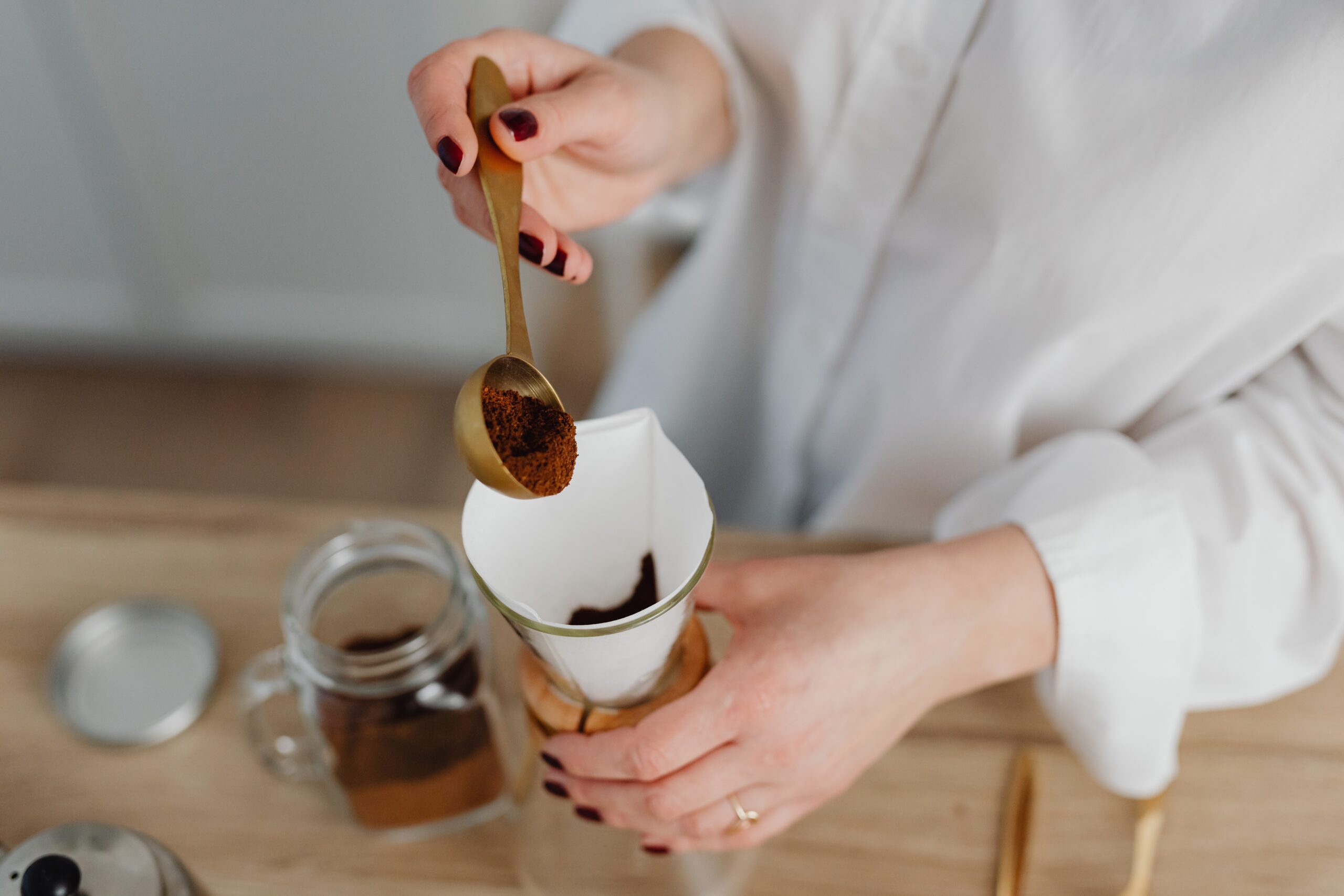
How Many Scoops Of Coffee Per Cup By Grind Size?
The finer the grind size, the more surface area of the beans is exposed. This means that you should use fewer scoops for a finer grind size, and more scoops for a coarser grind size. As an example, if you are using medium-fine grinds (similar to table salt), use one scoop of coffee per cup. If you’re using coarse grounds (similar to sand), use two scoops per cup.
How Many Scoops Of Coffee Per Cup By Type Of Brewing Method?
When it comes to various brewing methods, each one is different and will require a certain number of scoops of coffee per cup. For instance, when using an AeroPress, use one scoop of medium-fine grounds for every six ounces of water. For a French press, use two scoops for every six ounces of water. And for a Chemex, use four scoops for every 12 ounces of water.
So, if you still wonder how many scoops of coffee per cup, let’s watch this video to know more about this.
What Are Factor Affect To How Many Scoops Of Coffee Per Cup?
When it comes to determining the best amount of coffee grounds for a delicious cup of joe, several factors need to be taken into consideration. The type and quality of the beans you’re using is an important one; using higher-quality beans will require a lower ratio of grounds per cup as they are more potent. Additionally, the grind size of the coffee beans will affect how much you scoop, so make sure to adjust accordingly. Lastly, different brewing methods require a specific amount of grounds based on their design and your preference for strength.
Overall, it’s essential to understand that practice makes perfect when making coffee. Through trial and error, you can find the ideal ratio of scoops to cups that results in a delicious cup every time. Once you have it down pat, you’re sure to enjoy the perfect brew each and every morning.
Different Types Of Coffee And Their Recommended Scoop Amounts:
– Espresso Roast Coffee (for espresso machines): 1 scoop of coffee per shot.
– Drip coffee: two scoops for every six fluid ounces of water
– Pour over: one to two scoops for every six fluid ounces of water
– French press: three to four scoops for every six fluid ounces or three-fourths cup of water
– Cold brew: five to seven scoops for every 16 ounces of water
– Espresso: one scoop for every shot (18-20 grams)
– Latte: two scoops for every six ounces of coffee, plus one scoop for each ounce of milk
– Cappuccino: two scoops for every six ounces of coffee, plus one and a half scoops for each ounce of milk
– Macchiato: two scoops for every six ounces of coffee, plus one fourth ounce of espresso for each ounce of milk.
Regardless of the type of coffee you’re making, it’s important to take the time to measure your ingredients accurately and consistently. By doing so, you can ensure that your cup o’ joe will be delicious every single time.
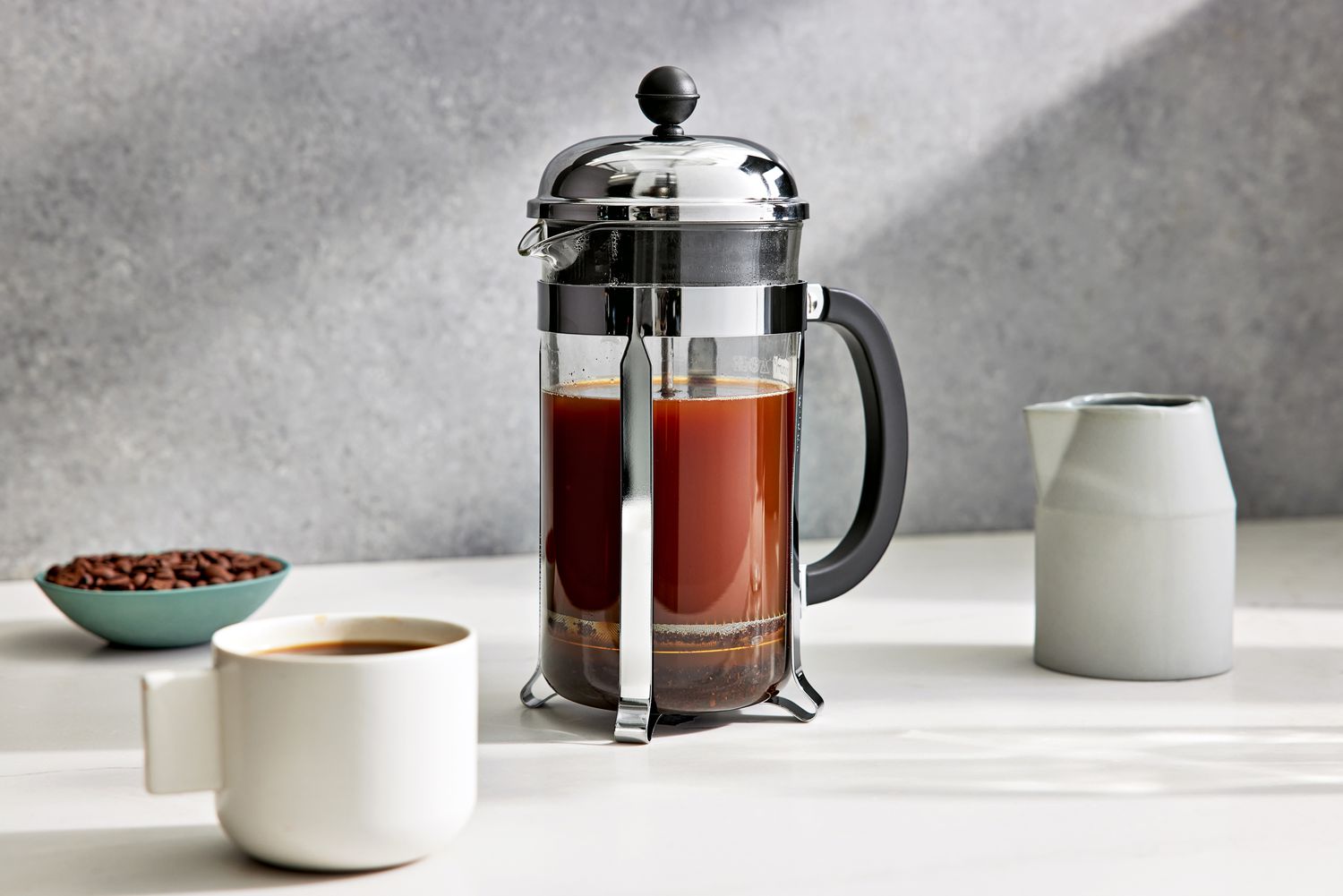
Tips For Measuring Scoops Of Coffee Per Cup:
– Use a kitchen scale to measure out your coffee beans in grams, as this is the most accurate way to ensure the right amount per cup.
– When using pre-ground coffee, use a small spoon or scoop to measure out the grounds.
– For espresso machines, it’s important to weigh out each scoop of beans on a kitchen scale to ensure accuracy.
– Always remember to adjust the amount of coffee you use based on the grind size and type of brewing method.
– For stronger cups of coffee, use moreoops per cup; for weaker, use fewer scoops.
By following these guidelines, can easily figure out how many scoops of coffee per cup you need to make your perfect brew every time. Whether you’re a beginner or an experienced barista, accuracy and consistency are key for creating the best possible cup of coffee.
See also: how many ounces in a cup of coffee
Benefit To Know How Many Scoops Of Coffee Per Cup?
Knowing how many scoops of coffee per cup is essential for making a delicious and consistent brew every time. It allows you to adjust the strength and flavor of your coffee to suit your own tastes, as well as those of your guests. Additionally, it ensures that you are using the right amount of grounds and avoiding any wastage.
By familiarizing yourself with the recommended ratio of scoops to cups, you can easily create the perfect cup of coffee that is tailored to your preferences. Whether making espresso or a French press, precision will make all the difference in achieving a flavorful and aromatic cup every time.
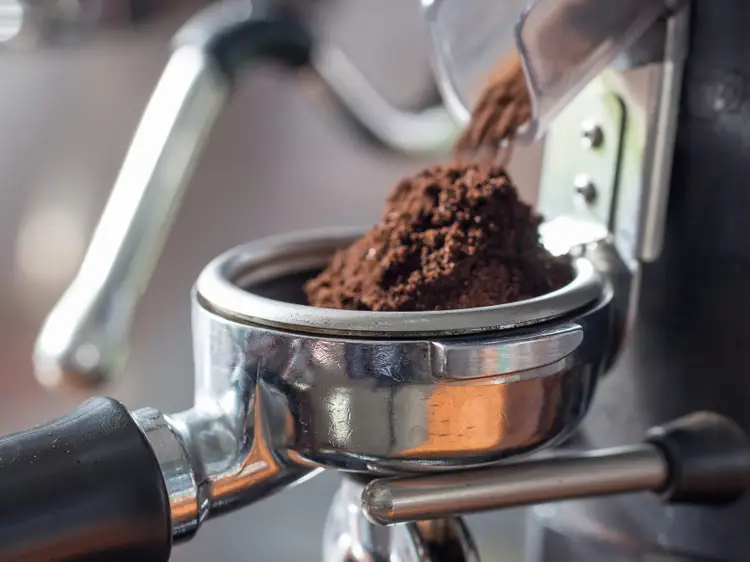
What Are The Health Benefits Of Drinking The Right Amount Of Brewed Coffee?
Regularly consuming the right amount of brewed coffee has numerous health benefits. It can help to reduce the risk of certain types of cancer, lower inflammation and improve mental clarity. Studies have shown that drinking two to four cups per day may even reduce the risk of developing type 2 diabetes.
In addition, coffee is rich in antioxidants which are essential for protecting the body against free radical damage and reducing signs of aging. It is also known to boost metabolism and improve energy levels, making it a great choice for those looking to maintain a healthy weight. By understanding how many scoops of coffee per cup you need, you can easily reap all the health benefits while enjoying delicious cups of your favorite brew.
Popular Recipes Using Multiple Scoops Of Coffee Per Cup:
– Iced coffee: For an iced coffee, use two scoops of ground coffee for every cup of cold water. Combine the grounds with cold water in a French press and steep for eight hours before straining into a cup or pitcher. You can also add ice cubes to make it extra refreshing.
– Mocha: To make a delicious mocha, use two scoops of ground coffee and one scoop of cocoa powder for every cup of hot milk. Simply combine the ingredients in a saucepan, heat gently, strain into mugs and enjoy.
– Caffe latte: To create a caffe latte, use two scoops of ground espresso for every cup of steamed milk. Place the espresso grounds in a portafilter, tamp and extract into a mug. Then, add steamed milk and top with foam or cinnamon for an extra special touch.
By understanding how many scoops of coffee per cup you need, you can easily make delicious cups of your favorite brews that are tailored to your own tastes. From iced coffee to mochas and lattes, a precision is essential for creating the perfect cup every time. By measuring out the right amount of grounds, you can also enjoy all the wonderful health benefits that come with drinking regular cups of brewed coffee.

Conclusion: How Many Scoops Of Coffee Per Cup
In conclusion, knowing how many scoops of coffee per cup is essential for making a delicious brew every time. By familiarizing yourself with the recommended ratio of scoops to cups, you can easily create the perfect cup that is tailored to your own tastes and preferences. Additionally, understanding this ratio also allows you to reap all the amazing health benefits associated with drinking regular cups of brewed coffee. With the right amount of grounds and water, you can make a delicious cup every time. Thanks for reading at yongkangstreetnyc.com.
FAQs: Scoops Of Coffee Per Cup
How many cups of coffee require 4 scoops in brewing coffee?
If you’re looking to brew coffee using four cups of water, you’ll need to use four scoops of ground coffee. For more precise measurements, use a coffee scale or measure out 36 grams and 20 ounces of coffee to ensure you have enough for four cups.
How many coffee scoops do I need for ten cups?
When making ten cups of coffee, you’ll need up to five scoops of coffee. It’s important to consider using coffee grinders and scales when making larger quantities. Ensure your coffee is at its best every time with proper measurement techniques.
Is a coffee scoop 1 or 2 tablespoons?
Wondering about the size of your coffee scoop? A standard coffee scoop generally holds two tablespoons.
How many scoops of coffee for 1000 ml French press?
Discover the perfect amount of coffee for your 1000 ml French press! Our recommendation is 7-8 scoops of coffee, ensuring a rich and flavorful brew every time. Enjoy your morning cup of Joe like never before with this expert advice.
How many scoops of coffee per cup of cold brew?
For an optimal and smooth taste, use four generous scoops of coffee per every 12 ounces of cold water. This ratio will give you the distinct and delicious flavor that you’re looking for in a refreshing cold brew. Enjoy your perfect cup!
How many scoops of coffee per cup of espresso?
Achieving the perfect espresso requires balance. Our recommendation is to use one scoop of coffee per serving and combine it with 1.5 ounces of water. This will result in a deliciously smooth cup of espresso every time.
How many scoops of coffee per cup of café au lait?
For a delicious and well-balanced café au lait, combine two scoops of coffee with twelve ounces of hot water. This simple formula allows you to customize the strength of your drink to your liking. Enjoy a café au lait that’s perfect for you every time.
How many scoops of coffee per cup of mocha latte?
Brewing a delicious mocha latte can be an art form. To achieve the perfect balance of flavors, we recommend using two scoops of freshly ground coffee for every 12 ounces of hot water. Trust us, your taste buds will thank you.
What size is coffee scoop?
To make the perfect cup of coffee, one essential tool is a coffee scoop. A level coffee scoop is designed to hold exactly two tablespoons of coffee, which is equivalent to approximately 10 grams or 0.36 ounces. With this simple measure, you can easily get the right amount of coffee for your desired brew. Start your day right with the right size coffee scoop.
How many scoops of coffee per cup in coffee maker?
For a strong cup of coffee, we recommend using one scoop of coffee grounds per cup of water. But if a weaker cup of coffee is what you prefer, then opt for one scoop of coffee grounds for every two cups of water. Remember, the best way to find your perfect cup of coffee is through experimentation. Start with these measurements and adjust as needed to achieve your desired strength and flavor.
What is a coffee scoop equal to?
Have you ever wondered what a coffee scoop is equal to? Look no further. A coffee scoop is equivalent to two tablespoons.

Chef Yong Kang has over 20 years of experience cooking in the finest restaurants, and is excited to present their vision to you and all our guests. Our caring and committed staff will ensure you have a fantastic experience with us.
We are also available for private events:, business lunches, dinners, and more. We would love to discuss how to be a part of your next event.Our restaurant refuses to compromise on quality, which is why we source our fresh ingredients from local farmers’ markets.


